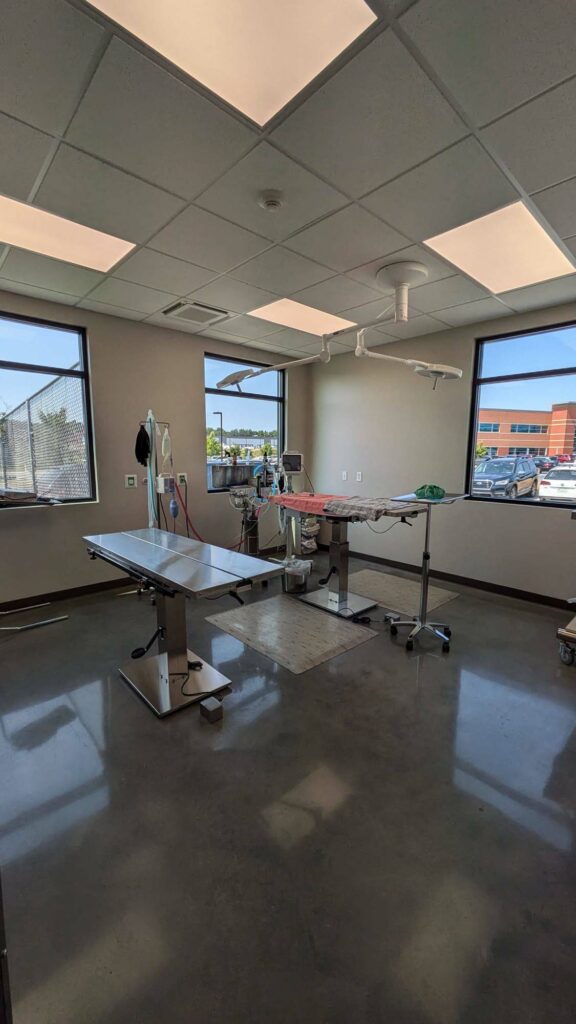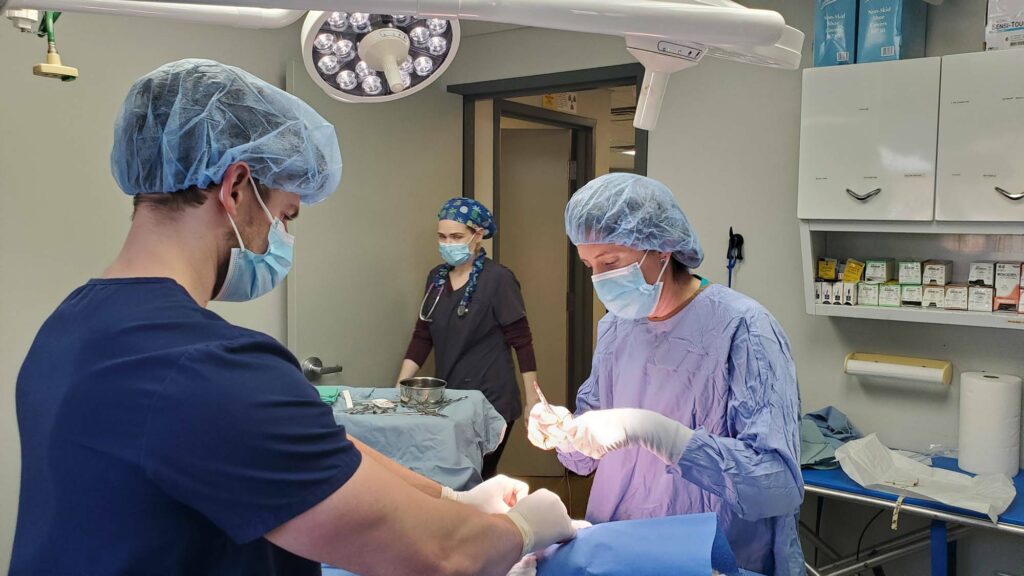We utilize the safest available anesthetics to provide an extra margin of safety, especially for our older or high-risk patients. Using the most modern equipment, the patient’s vital signs are monitored during all anesthetic procedures.
A technician is present during all stages of anesthesia: pre-medicating, inducing anesthesia, maintaining a good level of anesthesia, as well as in the recovery period. We utilize advanced multi-parameter monitoring equipment to aid us in judging the depth of anesthesia during a procedure. Our doctors use current anesthesia protocols and aim to provide thorough pain-management relief.
The type of pain medication needed depends on the surgery performed. Major procedures require more pain relief than minor ones like lacerations. Providing appropriate pain relief is essential for your pet’s comfort.
For dogs, we may recommend an oral non-steroidal anti-inflammatory medication starting the day after surgery to reduce discomfort and swelling. We use newer medications that are less likely to cause stomach upset.
Cats do not tolerate standard pain medications like Aspirin, Ibuprofen, or Tylenol. We administer a pain injection before surgery, and post-surgery pain medication is given as needed. Any animal in pain will receive additional medication.
*Performed by Dr. Albert Lynch, DACVS
(Diplomate, American College of Veterinary Surgeons)







Our family-friendly animal hospital serves dogs and cats, and helps educate their owners on how to help your “best furry friends” have a wonderful life with you!